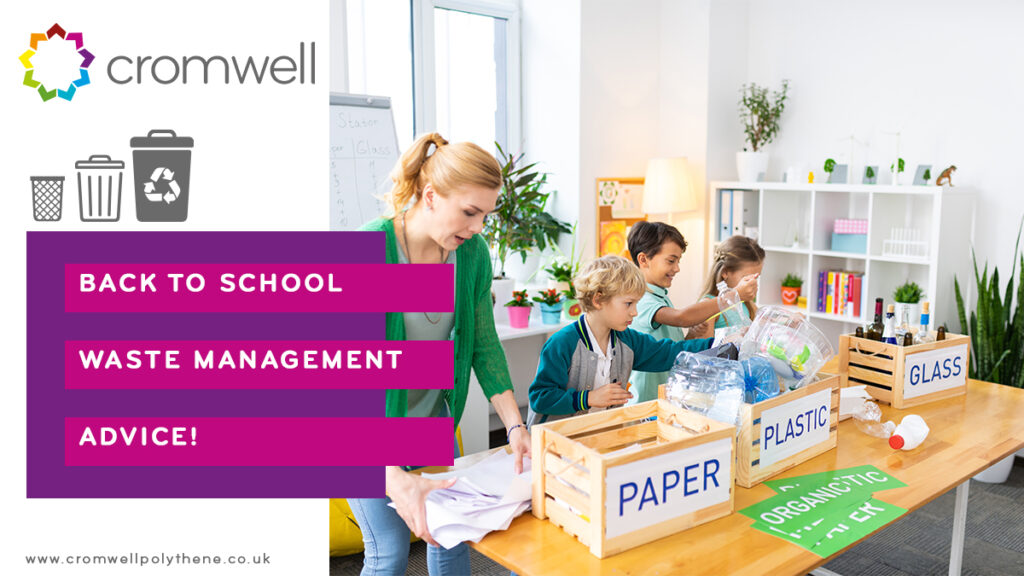As we enter September, the weather will begin to turn, the nights will get longer and just like that, the School Summer holidays come to an end, and it is back to school time. Primary schools, secondary schools, colleges and universities alike are preparing to welcome back their students and greet new pupils along the way. After the break for Summer, there will be mixed feelings about the return to school, some eager to be back, others wishing for just a few more weeks off, but one thing is for certain and that is the return of waste! The education sector is not immune to waste creation, both general and recyclable, and like many industries, there will be different times of the year when this heightens – the beginning of the new school year being one of them!
Waste in Schools
According to Business Waste, Schools, universities, and other places of education create a vast amount of waste every day. It’s estimated that the UK education sector produces upwards of 210,000 tonnes of waste every year. Regardless of the setting, whether its for children, or young adults, educational facilities still need a variety of waste management solutions. There is a wide variety of waste produced in schools including, paper and card, food, plastic, glass, WEEE, furniture waste and much more, thankfully a lot of this can be sent to recycling and reprocessing. As you can imagine the start and end of the school year sees the biggest influxes as they prepare for the new school year ahead, or clear out ready for the school break. Paper, card, plastic and WEEE are all produced in the classrooms, food waste, glass and paper in the canteens, but generic waste can be produced anywhere – so a means for waste capture in all areas of the school is vital for a healthy planet.
The Importance in Recycling
All schools are responsible for their own waste, and the correct management of it, by doing this correctly they are in-turn introducing good habits into their pupils and educating young people about how to be eco-conscious individuals, whose actions are protecting the environment. Staff and parents alike should be seen as role models to the next generation, by setting good examples in things such as recycling and correct, responsible waste disposal. Schools should encourage good waste management and then make bins and recycling points easily accessible to all. Pupils should be encouraged to recycle at school, to help mimic this behaviour outside of the education settings, whether this is at home or on-the-go. Simple methods of teaching the best waste management strategies can be extremely advantageous to the future of our planet.

Handling School Waste
Like in a home setting, there should be different bins to collect varying forms of waste, helping to correctly segregate the waste to allow for correct end of life treatment. Typically you will find paper bins, plastic bins, food caddies, WEEE collection points and your general waste bin, all clearly labelled for increased participation rates. Many educational facilities will have a variety of different sized bins, from your smaller office and classroom bins, to your 240L wheelie bins for small schools, to the much larger industrial bins for your larger facilities. Waste bags such as bin liners, refuse sacks and compactor sacks are all helping to keep this waste secure and contained. Using an appropriate waste and recycling bag helps to capture the waste, as well as making the decanting of receptacles an easy and clean process.
Cromwell supports the education industry, providing suppliers with quality waste capture and containment solutions for any types of waste produced. We can also give our expert advice on which bag is best for your type of waste, with our in depth knowledge of the industry. Be prepared for the new school term, and stock up for the full year ahead with Cromwell Polythene. Talk to us today and see how we can keep your educational facilities clean, and ready for the waste produced in the new academic year.